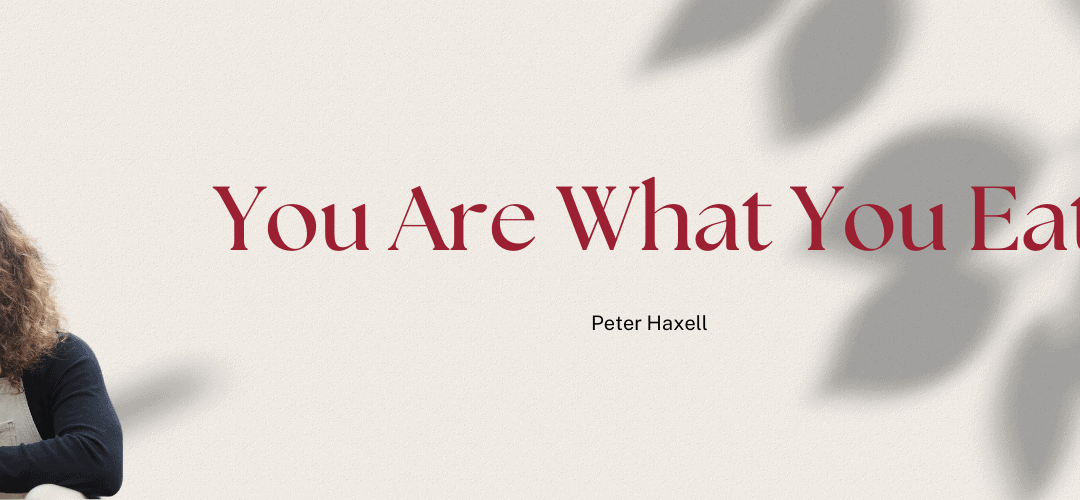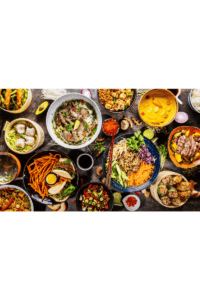“You are what you eat.” At least that’s what most of us have heard, or been told at some point in our lives. In truth though, as my old mentor Graham Jellett used to tell me “You are what your digestive system can absorb and process.” In the modern day health sphere, there are more new diets, super foods and health hacks than you can shake a stick at. It’s hard to decipher what to eat when there is so much information that is not grounded in centuries of knowledge. It’s one thing to be told a food is good for you. To eat it and to experience the effect it has on your body is to know the truth. Eating well should be simple.
How do I eat for better digestion: the mindfulness approach
Well, according to TCM theory, the answer to that question is, simply. That is to say, a diet should be easy to follow. Rigid diets, elimination of entire food groups, and overly restrictive diets are all detrimental to healthier digestion as a long-term solution. Why? Because too much restriction can create stress, tension, and anxiety around eating, most of which is held as stagnation in the tissues of the abdomen and leads to dysfunction of the gut. Most importantly food should be enjoyed and savoured, a meal should be a nurturing act, not just a quota of calories to be chowed down hurriedly whilst flickering through social media. Slow down, cut out distractions, be mindful of your food and how it tastes; simply be present.
Another thing that is vital is to cook. That is, to cook well and, where possible, cook slowly. The act of cooking is beneficial for the digestive system because it can be a meditative act, particularly once you are confident in your skills and know a few recipes. Cooking soups, stews and slow-cooked foods not only delivers delicious food but is much better for our nervous system than tearing through a drive through for fast food, or reheating a frozen meal from the supermarket. Food that is prepared with love, in a calm and relaxed way is always going to be better to eat than something prepared in a rush or by someone in a stressed state. I’m not saying you have to be as zen as the Buddha every time you cook, but at the very least, cook mindfully and enter the kitchen with as much ease and comfort as you can find. Food is a ritual, keep it sacred. And just like spirituality; a little food goes a long way. Don’t overeat.
What do I eat?
Whatever is in season. It’s that simple. Go to a local farmer’s market or organic grocer and see what is growing locally and in season and eat it. If it’s organic all the better. Eating tropical fruit in the middle of winter is a privilege, not a necessity. and here is an odd bit of advice: stop eating bananas folks, especially in winter! In my experience, eating bananas in a Victorian winter goes together about as well as a group of vegans visiting a butcher shop. It just doesn’t end well. (Sorry vegans, I do love you).
From there listen to what your body needs; not what your mind tells you is morally acceptable. If you need to eat meat, fish, eggs, ghee to survive then eat them. If you can survive on kale and pure sunlight then more power to you. Truly. There are some with constitutions that support vegetarian and vegan diets. There are also those that don’t. In terms of eating protein, carbohydrates, and fats, balance is key, all are fine, at the right times and in the right amounts. A small amount of protein at every meal is good. Carbohydrates such as oats, rice, potatoes are best eaten after exercise or in small to moderate amounts. With fats, things such as ghee, organic butter, avocados, nuts etc are healthy in small amounts; don’t overdo it.
What not to eat?
Ultra processed foods! They are made from substances extracted from foods; starches, fats, sugars, etc. These ‘foods’ include; ice cream, canned and packaged foods, cereal, biscuits, cakes, pre-made sauces, marinades, soft drink, lollies, candy just to name a few. As part of an everyday diet they have absolutely no place. The occasional; and I mean occasional, departure is ok. But a daily piece of cake or handful of lollies is not occasional. A birthday, for example, is an occasion. A dessert once a week or fortnight is occasional. Christmas pudding on Christmas day is occasional. However, regularly eating a packet of chips at morning tea is not occasional. That’s habitual and it’s bad news in the long run. Stop eating food that’s been meddled with and mucked around with. I call that sort of food bastardised food! It’s no longer real food. It’s junk food and we need to so goodbye to junk food. Simple!
How to listen to your body
If you eat food, pay attention to these cues.
How does it sit in your stomach?
If there is discomfort then you’ve eaten too much or you can’t digest it well Is there bloating or gas? You’ve overeaten or you can’t digest it well
Is there heartburn or reflux? You’ve overeaten or you can’t digest it well
Do your bowels become loose? If so, you’ve overeaten or can’t digest it well
Do your bowels become firmer, more constipated? You’ve overeaten, or can’t digest your food.
Do you feel tired and lethargic after meals? You’ve overeaten or can’t digest your food.
What next?
Struggling with digestion, or unsure what type of diet is right for you. Peter is here to help guide you back to health, and that always begins with optimising your digestive health.


